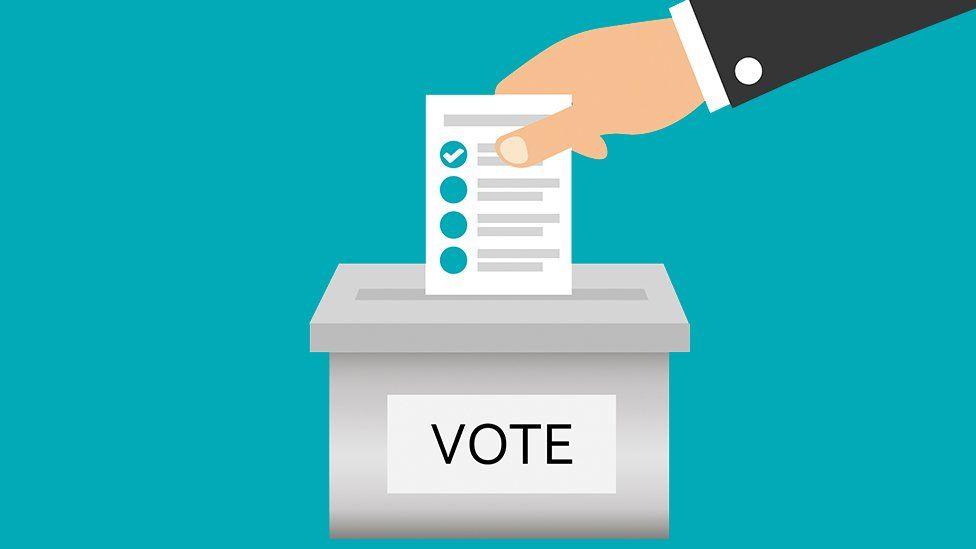Lessons from party primaries
At last, primary elections into elective offices have been concluded by all the 18 registered political parties in the country. This was after the Independent National Electoral Commission (INEC) adjusted the electoral timetable by extending the deadline for political parties to conduct primaries, by six days. It would be recalled that the Chairman of the […]

At last, primary elections into elective offices have been concluded by all the 18 registered political parties in the country. This was after the Independent National Electoral Commission (INEC) adjusted the electoral timetable by extending the deadline for political parties to conduct primaries, by six days. It would be recalled that the Chairman of the Inter Party Advisory Council (IPAC), Engr. Yabagi Yusuf Sani, at a meeting between INEC and the leadership of the registered political parties which was held at the INEC headquarters in Abuja, had asked for a two-month extension; a demand which was rejected by the commission. INEC, however, granted a six-day extension from June 3rd to enable political parties to conclude the conduct of their presidential conventions and primaries.
Commenting on INEC’s decision, the National Commissioner and Chairman, Information and INEC’s Voter Education Committee, Festus Okoye, said the commission decided to allow the request of the political parties since the six-day period did not conflict with the next scheduled activity which is the submission of the list of nominated candidates or any of the subsequent timelines. He also advised political parties to use the six-day extension period granted by the commission, covering June 4 – 9, 2022, to conclude outstanding primaries and prepare to upload the list of candidates and their affidavits on the INEC Candidates Nomination portal; adding that the extension was in respect of outstanding primaries only without prejudice to those already concluded by political parties. Meanwhile, the uploading of details of presidential candidates and their running mates is to be concluded on or before June 17, 2022.
Although the primaries were allegedly not without the use of money to induce delegates, they were generally peaceful and devoid of the rancour and ballot-box snatching, that in the past characterised the exercise. The results, especially of the presidential primaries, are also not trailed by petitions from contestants challenging the credibility of the results or the legality of the process. Indeed, some political parties, including the Social Democratic Party (SDP), ensured that all outstanding matters such as filling vacant positions in the party’s executive committee were taken and duly ratified at their conventions.
More significantly is that no political party succeeded in imposing candidates on party members, particularly during the presidential primaries. The electoral process was seemingly allowed to proceed through voice vote or balloting without any obvious interference from party leaders and aspirants. To a great extent, the process, which appeared transparent, was fair as level-playing ground was provided for all aspirants.
Given some of the political activities that preceded the recent primary elections across parties, progress could be said to have been made in the country’s attempt to build a strong democratic culture. The campaign visits undertaken by presidential aspirants, for example, to interface with delegates and canvass for their votes before the date fixed for their respective party’s convention is a positive development. It’s a new dimension from which the electoral process has benefitted. As a consequence of this, delegates from one state were seen to have voted for different candidates of their choice; reflecting the principle of democracy which expectedly should underscore every aspect of the electoral process. As of now, there are no court injunctions seeking to stop INEC from proceeding to the next stage on the timetable of the 2023 general elections.
Before now, state governors were suspected to be dictating or determining, to a very large extent, the pattern upon which delegates from their respective states voted at party primaries. The story, for instance, was not entirely so during the presidential primary election of the All Progressives Congress (APC). While Governor Ben Ayade of Cross River State and his Kogi State counterpart, Alhaji Yahaya Bello, failed to get the votes of all the delegates from their respective states, Chief Chibuike Rotimi Amaechi, who is not a governor, came second after Asiwaju Bola Ahmed Tinubu with 316 votes – a number higher than that which was individually scored by the duo who are serving governors. Vice President Yemi Osinbajo, who is not a state governor, also came third with 235 votes in the presidential race of the party; scoring higher than the two serving governors that participated in the contest.
While we congratulate all registered political parties for holding chaos-free primary elections, we expect more positive developments from all stakeholders, particularly politicians, in the remaining stages of the journey to the 2023 general elections. We equally urge them to promptly meet up with all the other timelines set by INEC for all political activities scheduled on the timetable of the 2023 general elections.
The electioneering campaigns, when they kick off, should be devoid of the use of thugs and other elements of political intimidation by party leaders and aspirants. Public speeches by aspirants and their supporters at political rallies or conversations at interviews expressed by any means, electronic or otherwise, conventional or social media, should be free from hate speech. The relatively peaceful and orderly manner in which party primaries were conducted should reflect in the activities of politicians as we march toward the 2023 general elections.
